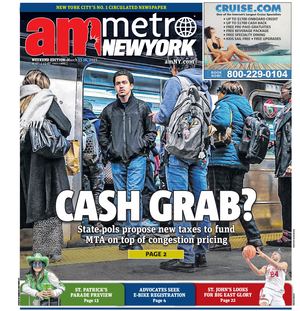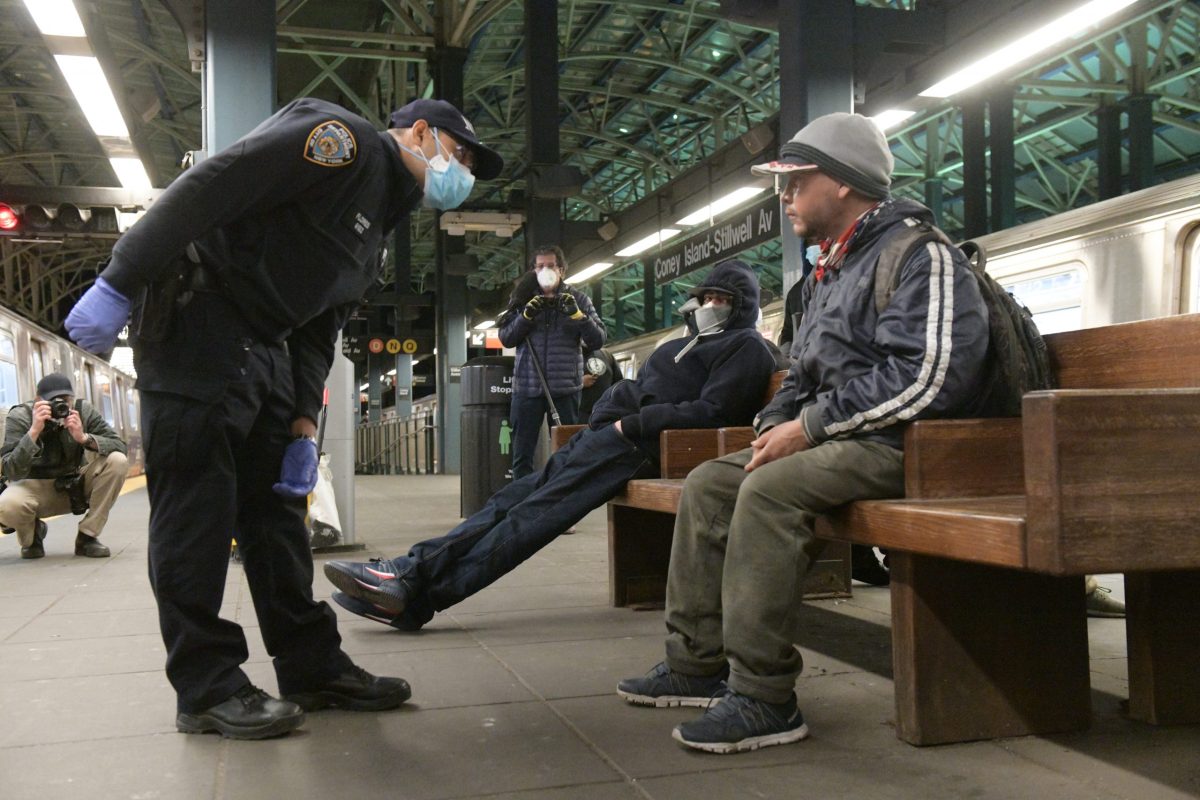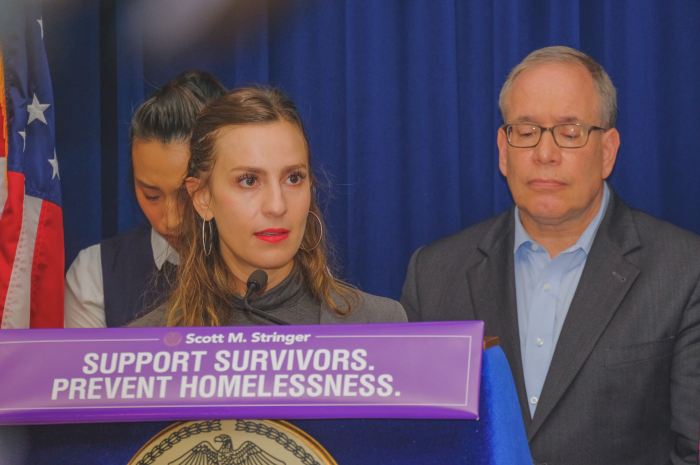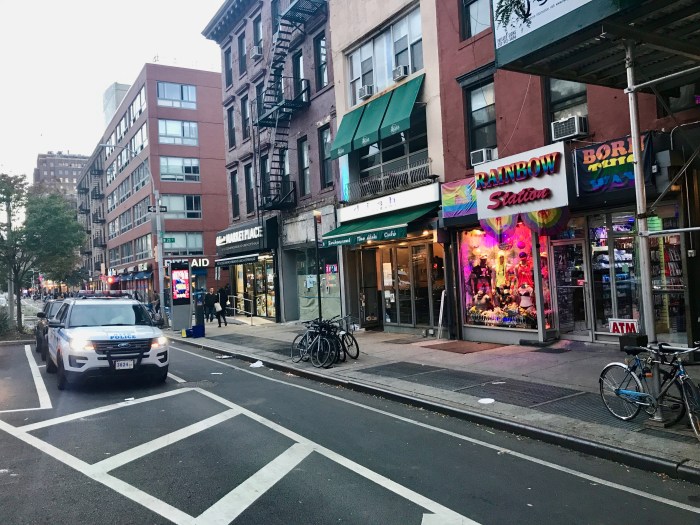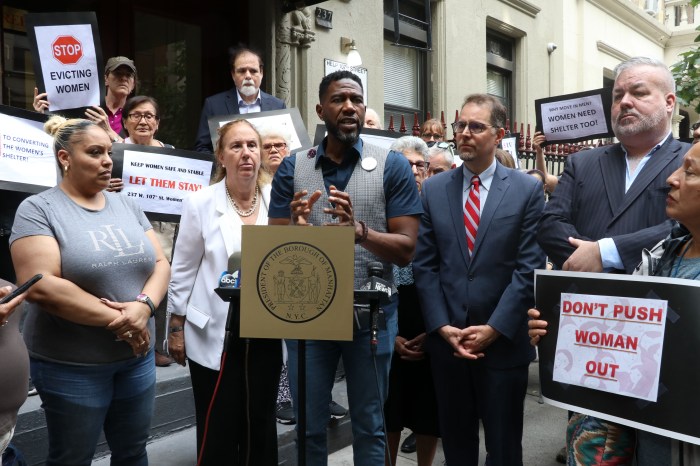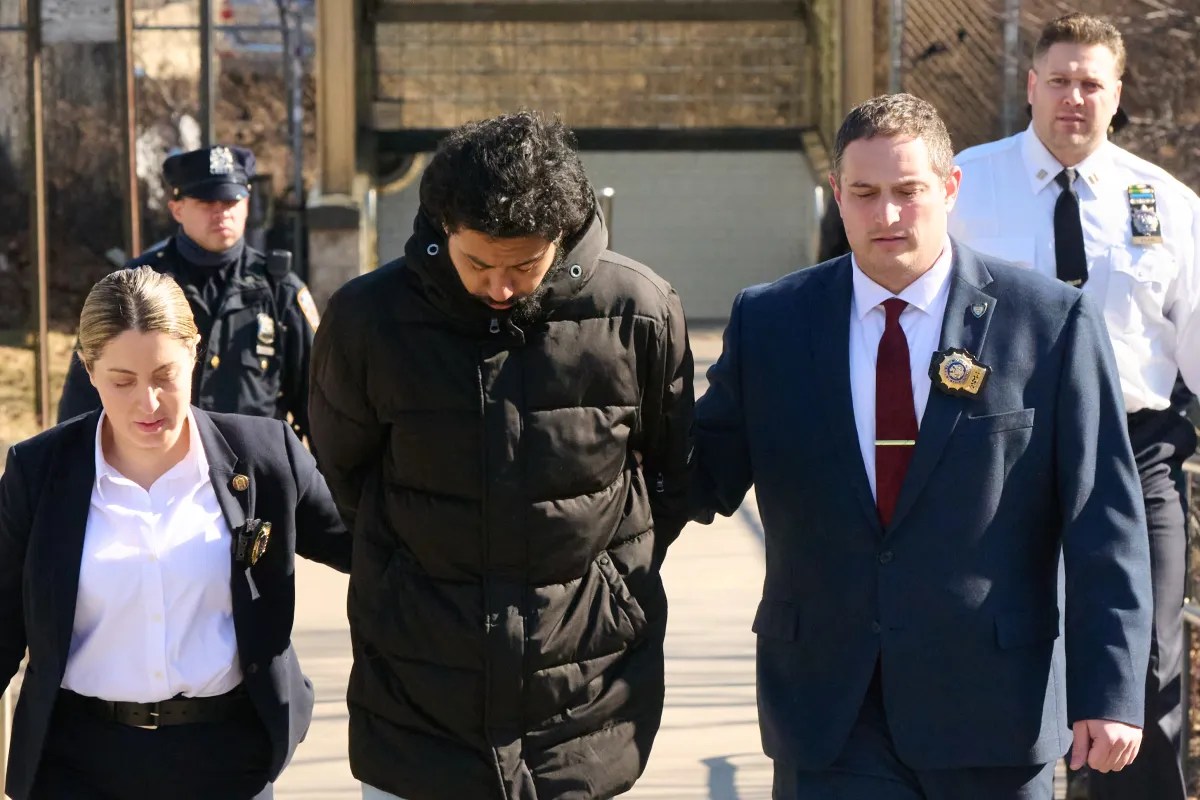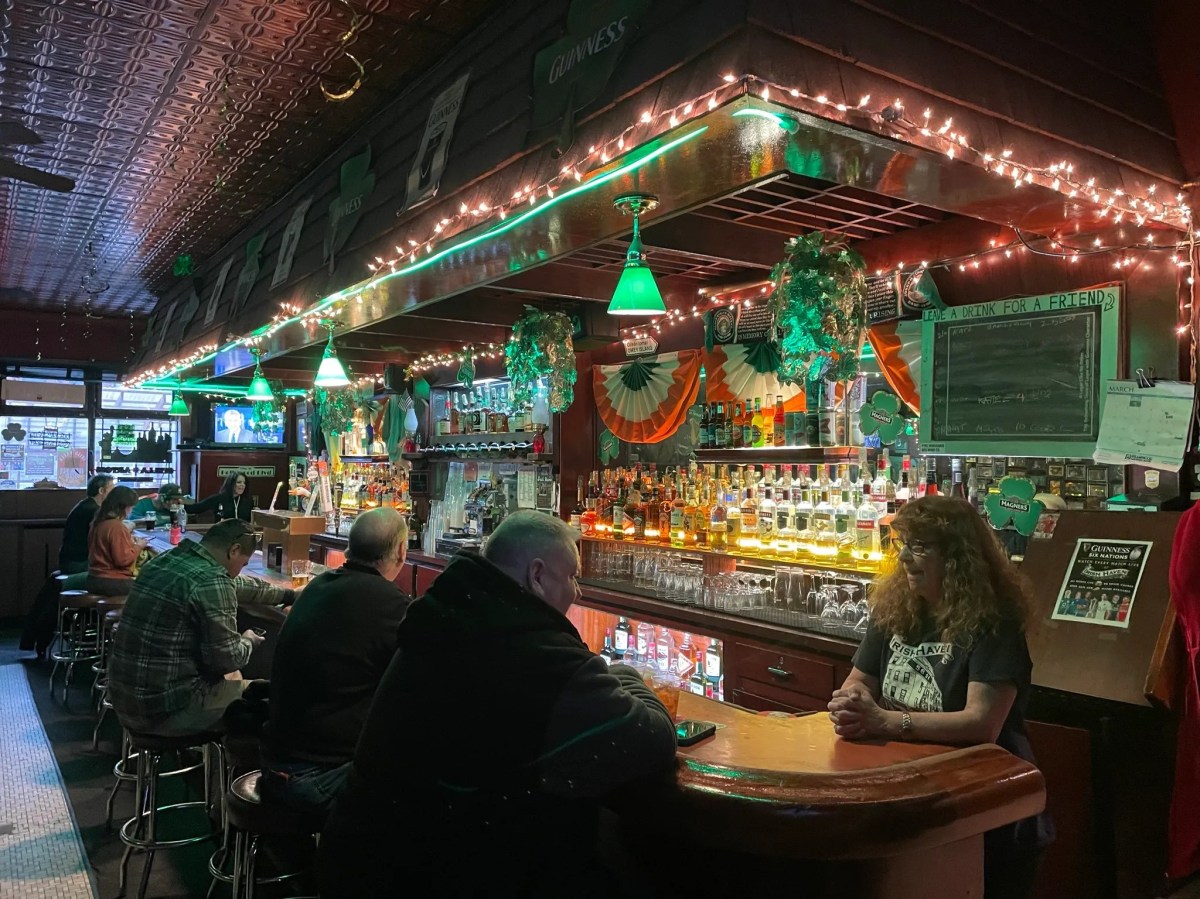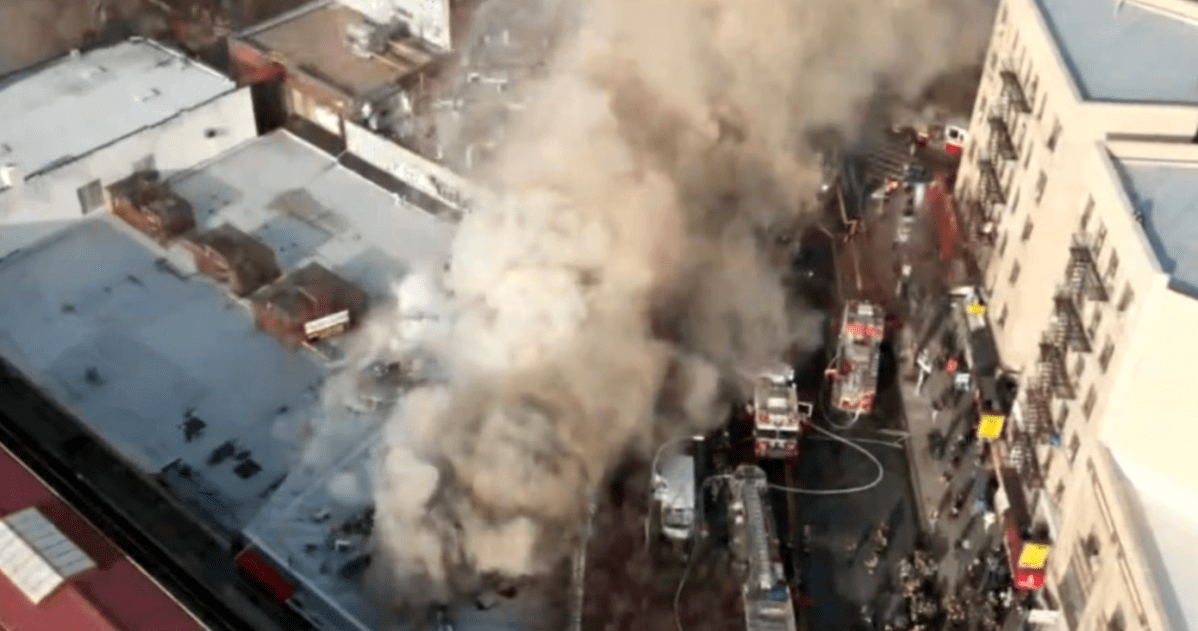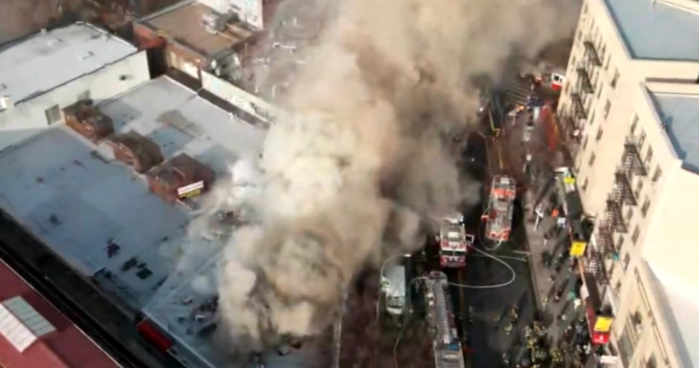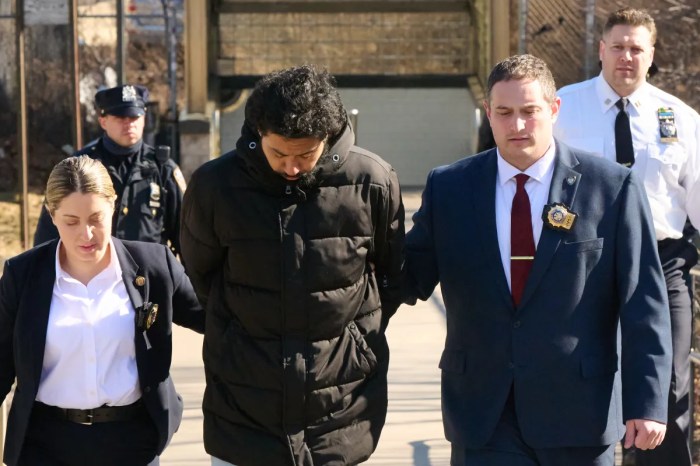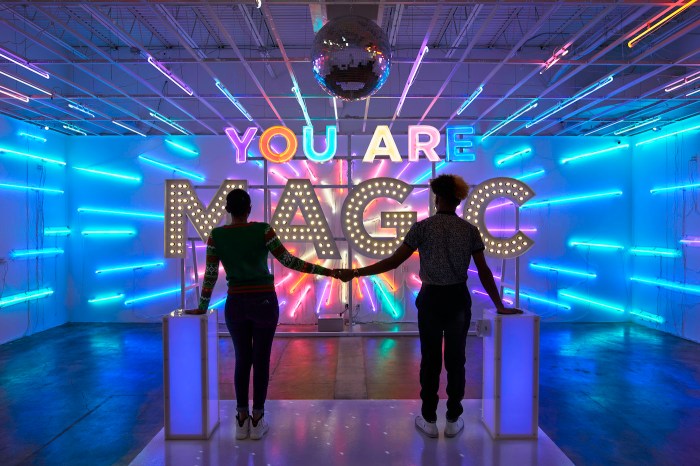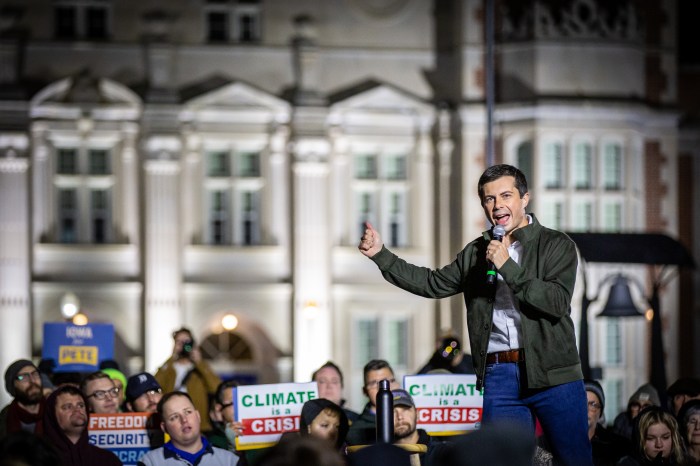The Metropolitan Transportation Authority fell under heavy criticism over the weekend when the New York City Transit Twitter page attributed homelessness for the reason benches were removed from subway stations.
The fray started Friday morning when an account named @des4gr8ness tweeted about the removal of benches in stations, facetiously asking if they were cutting into the MTA’s ongoing budget drama due to COVID-19.
A social media operative by the initials JP responded that the decision to remove the benches was due to “the homeless” sleeping on them. The response has since been deleted with agency.
“The tweet was posted in error and it has since been removed,” MTA spokesperson Abbey Collins said. “The subway is not a substitute for a shelter and homeless New Yorkers deserve much better care. We have been working with the City on this important issue and have asked for more dedicated mental health and medical resources which are urgently needed to solve the homeless crisis that has been exacerbated by the pandemic.”

The response was retweeted over 3,500 times.
A joint effort between NYPD and the MTA would clear all stations of travelers between the hours of 1 a.m. and 5 a.m., and city social workers from Department of Homeless Services would offer help during those hours when homeless people were exiled from trains.
The MTA uses these hours to disinfect trains and touch points in stations, but the measure has been called into question for the fact that trains continue to operate on a regular schedule – sans paying customers – and the unclear cost of cleaning supplies and labor.
The agency’s workforce took a disproportionate hit from COVID-19 early on, both with dramatic reductions in ridership across all systems, threatening the budget, but also with the number of New York City Transit employees who fell ill and died.
With pandemic in New York officially starting in March, the MTA had lost well over 30 employees by the end of April. Today that toll stands just under 140 for which the agency is paying next of kin $500,000 in death benefits.
